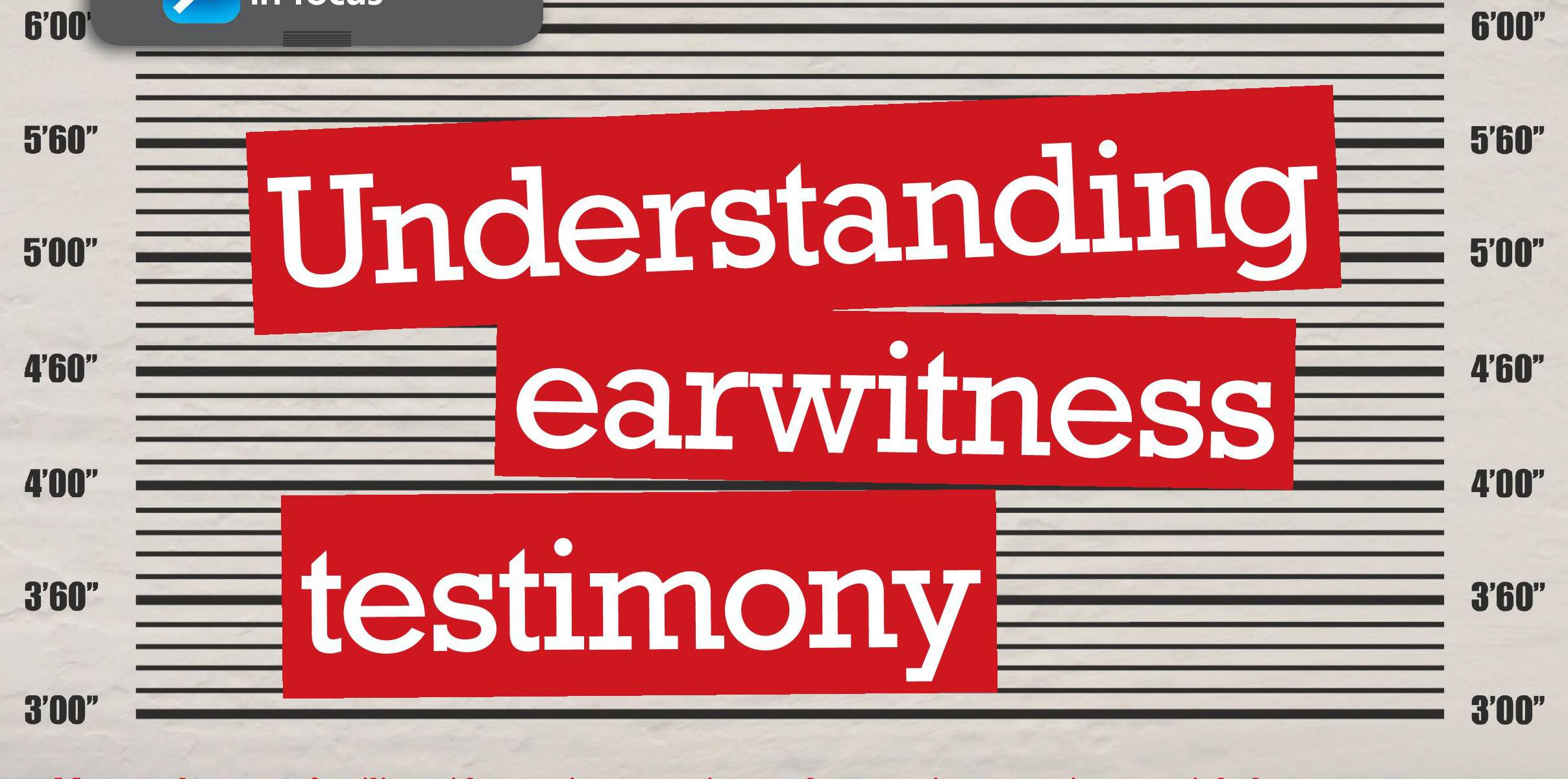
Earwitness and eyewitness testimony (what someone reports hearing or seeing in relation to an alleged crime) is both an essential element of many detective dramas, and of great real-world value in legal settings. For some crimes, the only useful and available evidence is earwitness/eyewitness testimony (Yarmey 1995). This kind of evidence is highly prized by law enforcement agencies, not least because juries are often greatly persuaded by this form of evidence.
Unfortunately, our memory for events can often be unreliable (e.g. Loftus and Palmer 1974), even when (and sometimes because) we are confident about what we have seen or heard. Therefore, it is of real-world importance that we improve our understanding of the way we process, represent and recollect the world around us.
Your organisation does not have access to this article.
Sign up today to give your students the edge they need to achieve their best grades with subject expertise
Subscribe




